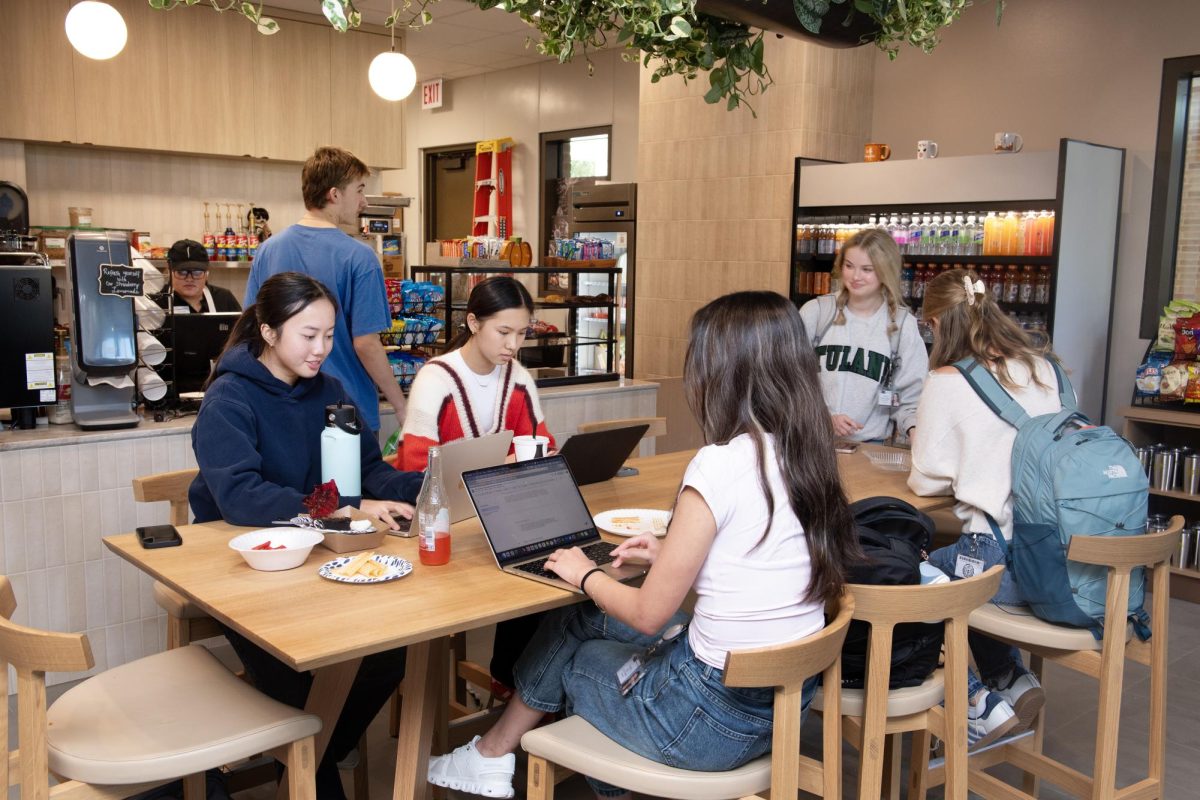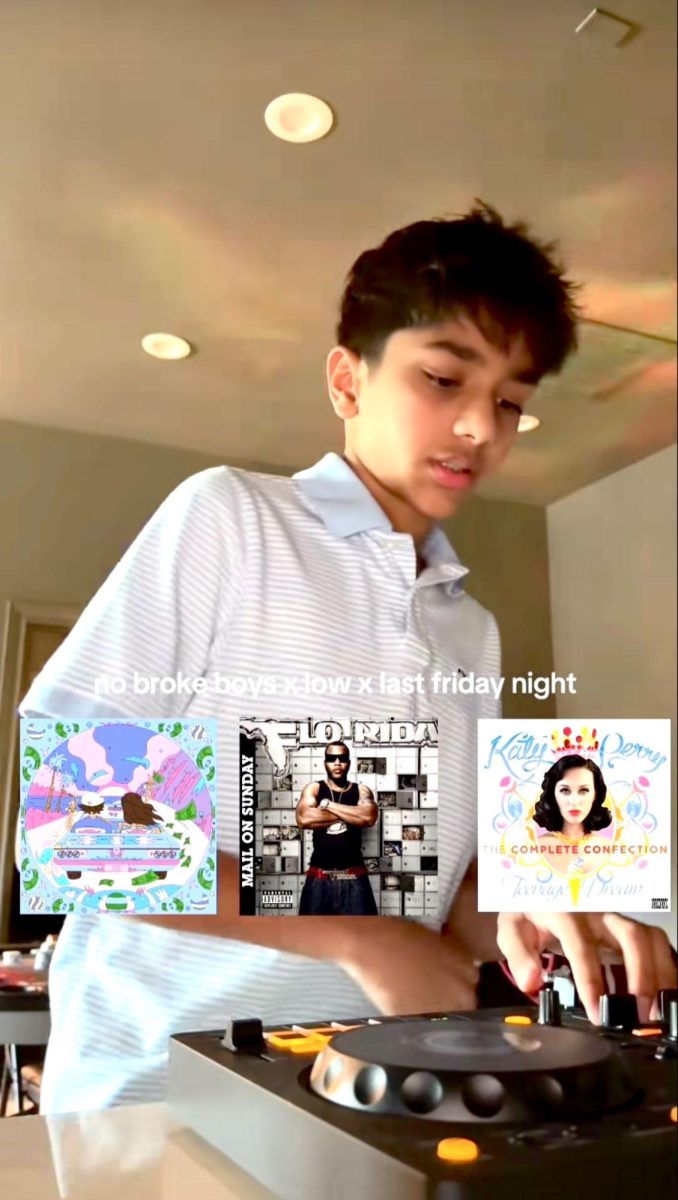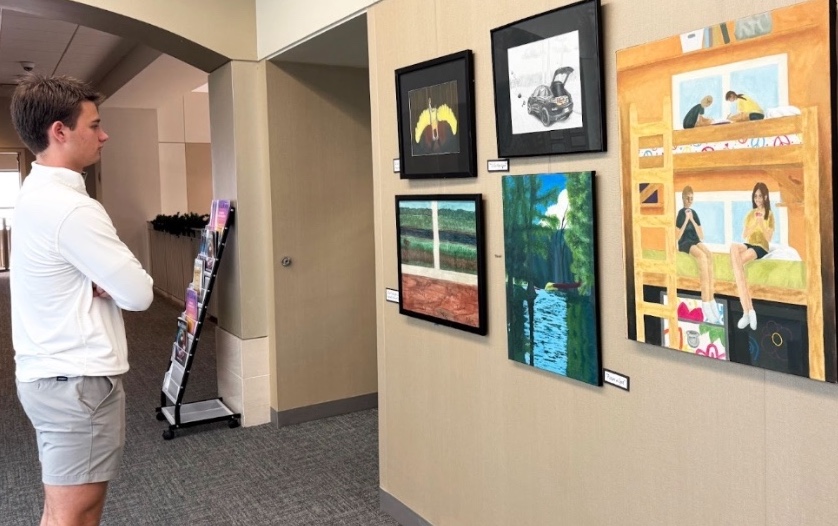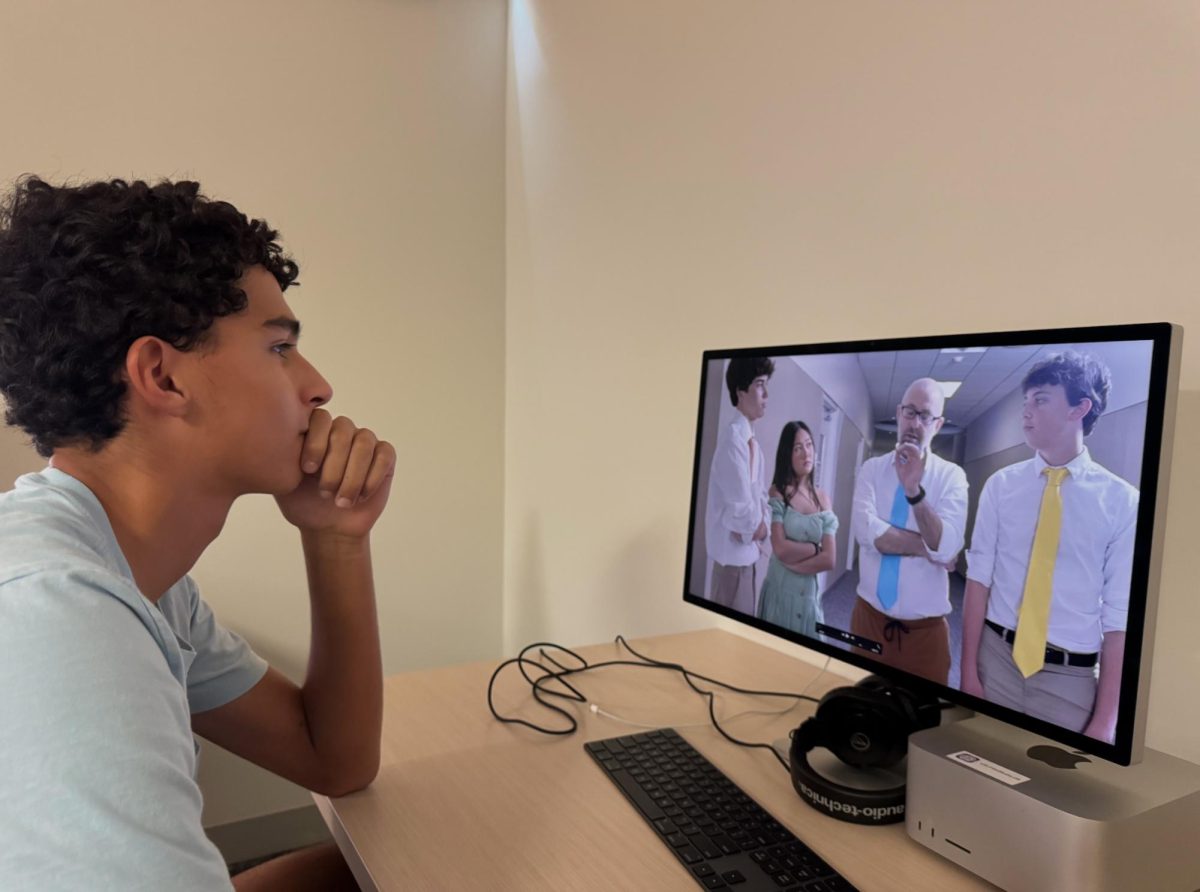“I prefer TV clubs because it is something new and different that I have never learned about before,” senior Caroline Loeffler said. “I like it especially since we are watching ‘Stranger Things’.”
During senior year, the students who chose to take the AP literature “Coming of Age in a Complex World” class participate in TV clubs once a month.
TV clubs, which are similar to a book club except with films instead of books, have brought students together to watch television shows. After watching a show, the clubs analyze and discuss it.
“I enjoyed watching the show ‘Jessie’ because it was a great example of coming of age not just . for the kids, but it changes the parents too,” senior Bennett Bowman said.
In this club, students will have the opportunity to explore coming-of-age themes and gender dynamics, which are often central to many works of media and art.
“Coming of age” refers to the transition from childhood to adulthood, a process that involves personal growth, self discovery and a deeper understanding of the world. It’s a theme frequently studied in literature, film and other creative works.
Additionally, gender dynamics are an essential part of the coming-of-age narratives, offering a lens through which people can understand how gender roles and relationships shape individual experiences and social expectations.
TV clubs provide an opportunity for students to engage with the media in a thoughtful and analytical way, giving a space for discussion and deeper understanding. Whether analyzing the challenges of growing up or the complexities of gender roles, these discussions allow students to connect with the material and each other in a meaningful way.
As the year continues, students will watch a variety of shows with their groups, each offering their own perspectives and opinions. The experience not only broadens their perspective but also enhances their ability to critically analyze the media. Ultimately, TV clubs create a sense of community while encouraging thoughtful reflection on the themes that influence our everyday lives.












